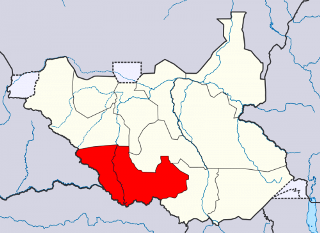Armed youth in Western Equatoria demands representation at higher institutions
October 27, 2015 (JUBA) – A group of armed youth from Western Equatoria state in South Sudan has presented a list of demands seeking representation from the higher institutions of the national government .

“The issue of insecurity was one of the issues I wanted to address first when I was appointed. And when I came I told the people during first public address that I will not work alone; I will work with people. So the first thing I did was to put in place security measures to control increased armed hostilities. The security in Yambio, which is the state capital, was worrying. The same thing was in greater Mundri and Maridi counties. In Yambio, we decided to place curfew and this has helped and then we moved ahead to form a peace and reconciliation committee,” explained governor Patrick Raphael Zamoi.
This committee, he said, was set up in October and has held talks with an armed group comprising members of armed youth. The committee included religious leaders, youth, women and elders.
The committee conducted series of consultative meetings with the group during which different youth groups representing dissident armed youth from Mundri, Maridi and Yambio counties presented their lists of demand seeking representation in the army, police and national security as a precondition for ending the hostilities in the state.
“From the report, they (armed youth) are demanding representation in the army, police and security. They have a list of people they want in the army, police and security to be promoted to senior ranks. They are asking, where are we in the national security, in police and the national army,” said Zamoi.
The group, according to governor Zamoi during an exclusive interview on Tuesday with Sudan Tribune, is also asking the government to support development projects in their areas. He said his government has received the reports and told them to cease hostilities with assurances that all the demands will be presented to the national government for solutions.
South Sudan has a lot of armed groups fighting either in defence of themselves against the government or neighbouring communities.
With signing and jump starting the implementation of permanent ceasefire after the rebels signed minutes of the transitional security arrangement workshop, a key controversy concerns the future status of the numerous non-state armed groups, which represent different ethnic groups, such as the Nuer white army and Maban defense forces as well as the Dinka Gelweng in some parts of Bahr el Ghazal states, arrow boys in Western Equatoria and many other ethnic based armed groups in the troubled nation.
While the motives of taking up arms vary from group to the other or from one region to the other, the leaders of the rebel faction allied to the former vice president, turned rebel leader, Riek Machar, demanded a federal system and democratic reforms within the ruling Sudan People’s liberation Movement (SPLM).
But other groups that now form part of the movement specifically the Shilluk based rebellion was formed to advance local disputes over land with neighbouring Dinka ethnic group. It remains unclear what will happen to this rebellion and many lower- and middle-ranked armed actors in the future.
Observers and security analysts have expressed fear of possibilities and challenges of different integration options for the armed actors and debate on ‘Disarmament, Demobilization and Reintegration’ (DDR) programs. Many security experts have argued that conventional disarmament is unrealistic at present.
This, according to security experts, is because such programs view disarmament as a necessary first step in a disarmament process, and because economic incentives as seen as the key route to reintegration.
Others have pointed to unlikelihood of some ethnic armed groups not giving up arms, and besides economic opportunities they demand political recognition and positions. This calls for a combination of military, political and economic integration options, and for a careful consideration of the heterogeneity of the armed actors, they observed.
(ST)
